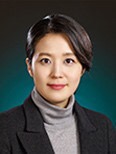Professor Hong Una(Eunah), Division of Kinesiology & Sports Studies

“Chung on fire!” A twenty-one-year-old Korean tennis player nicknamed “professor”─acquired because he wears Google Glass during matches─poured energy and excitement into the game for his Korean fans. The good-feel-factor for this year’s Australian Open, held in Melbourne Park, was like the enthusiasm felt during the FIFA 2002 World Cup when Korea reached the semi-finals.
Chung Hyun’s performance up to the semi-final against the live legend, Roger Federer, exceeded our expectations. It was unfortunate that Chung had to retire in the second set due to severe blisters on both feet. However, it was a dream come true not only for Chung but also for the Korean people to witness a Korean player at the tennis grand slam tournaments. His accurate shot, power, stamina and excellent physical condition in combination with height, balance and flexibility was something that Korean tennis fans hoped to watch at some point in the future; however, very few people had predicted it would happen this soon. Of course, Chung didn’t achieve this overnight. His persistence, resilience from injury and setbacks─along with ruthless training─helped him improve as a tennis player and strengthened his mental ability to beat other players whose rankings were much higher than his.
The icing on the cake was Chung’s witty comments during the on-court interview with Jim Courier, a former Australian Open Champion. Instead of cliche answers, which are expected to a certain extent, the young “professor” from the Far East expressed his honest thoughts and immediate emotions, illustrating his confidence and preparation, and this attracted tens of thousands of fans around the world.
Tennis has so many elements we can find in our own lives. One of the tennis legends of all times, Andre Agassi, summed it up perfectly: “Tennis uses the language of life. Advantage, service, fault, break, love ─ the basic elements of tennis are those of everyday existence, because every match is a life in miniature.”
Let me elaborate on what Agassi said. The tennis match always starts from love (zero), the point where all expectations begin because anything is possible from love. Indeed, we often see that players climb up from that point to win the game. When you lose a service game, the opponent breaks your game. It’s normal that players facing an opponent’s break point don’t give up; instead, they add points and get to an advantage after deuce. Whether you like it or not, you must serve every other match. Your first serve may be a fault, but you always have a second chance to serve.
I believe that what most distinguishes tennis from other sports is the genuine expression of respect players extend to each other. When you win a match, following a short celebration, you go to the net to shake hands with your opponent and the chair umpire. Only after the handshakes do you reveal your joy to the crowd. Losing players always pack their bags and leave the ground rapidly, which shows courtesy to the winner. The pinnacle of the tennis match is the speech at the awards ceremony after the final match that both the winner and runner-up attend. The congratulating remarks given to the opponent, and the expressions of gratitude extended to the opponent’s player box (where family and coaches sit), fans, sponsors, ball kids and volunteers─all these things shine a light on the value of tennis.
When, in our everyday lives, we strive to set clear goals, work hard, recover from difficult situations, keep a fair play spirit and respect others, we can actualize our dreams, and the world becomes a more beautiful place to live in. Of course, the key in life is the love we hold for ourselves and others.
Professor Hong Una(Eunah) received her Ph.D. in Loughborough University and she is currently working for Division of Kinesiology and Sports Studies as an assistant professor.

